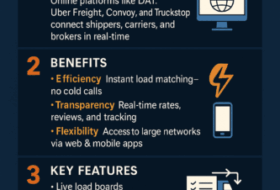Broker Laws
Freight broker laws govern the transport of cargo from location to another. Freight brokers consist of individuals or companies that act as intermediaries to set up the necessary services for shippers in need of having cargo transported and companies that can provide the necessary services. Freight brokers work with companies, sometimes called carriers, to help fill their trucks, vans, ships or aircrafts and, in turn, earn a commission or fee. The Federal Motor Carrier Safety Administration (FMCSA) has the authority to oversee freight brokerage operations.
Process
The regulations require applicants to complete a three-part process to receive authorization as freight brokers, including licensing and bonding. In addition, the broker must secure process agents in the states of operation. Freight brokers must also meet specific record-keeping requirements.
Licensing
U.S. regulations require freight brokers to obtain licensing by FMCSA. A successful applicant receives a Motor Carrier (MC) number. The process entails submitting an application called an OP-1 and submitting incorporation or other business-related documents concerning your company structure. It also requires paying an application fee. FMCSA issues an MC number that has a pending status until the broker obtains the necessary surety bond.
Bonding
To operate legally, a freight broker needs to purchase a surety bond or trust for his enterprise. A surety bond serves as proof that the freight broker can pay the railroads, airlines or trucking companies used for transporting goods. If the freight broker cannot pay the transporter for any reason, the bonding company must pay the cost. The regulations require the broker to submit proof of the bond coverage to FMCSA. The applicant must fill out form BMC-84 and meet stringent credit requirements, which make it more difficult to secure the surety bond. Obtaining a surety bond costs less than the alternative, which is to put up $10,000 to structure a trust to pay any claims. The freight broker must fill out the BMC-85 form for this method.
Process Agents
Federal regulations mandate that all freight brokers have a process agent in each state where they operate an office and execute contracts. The process agent functions as the carrier’s lawful agent and must accept any notification of legal proceedings against the carrier involving interstate shipment to or from that state. The process agent must forward the documents to the freight broker. The freight broker has to fill out a Designation of Process Agent Form and pay the cost for each agent.
Recordkeeping
The Code of Federal Regulations requires freight brokers to maintain a master list of shippers and carriers. The information they must keep includes the name and address of shippers and carriers and the carriers’ MC number. Some other data requirement include the billing of lading or freight number, the freight broker’s fee and the source of the fee. Freight brokers must also reveal the amount of freight charges as well as the payment date.







